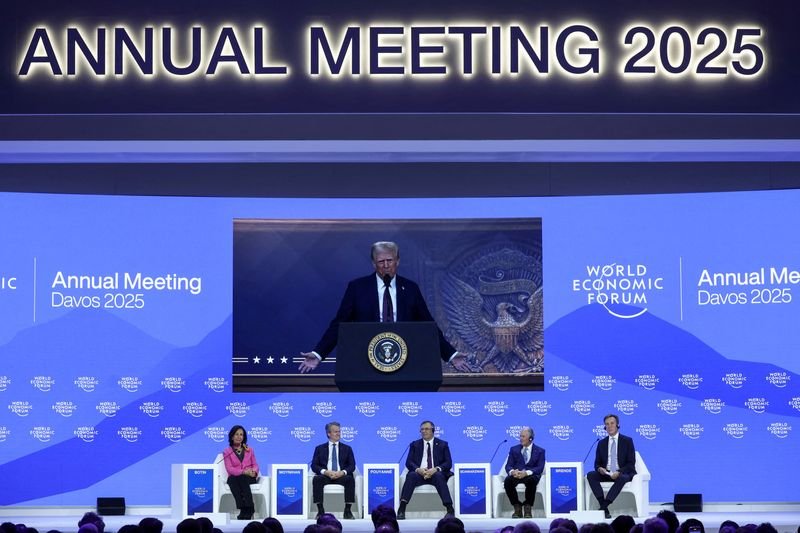Will we value our landscapes more as our cities overheat, forests burn, our rivers flood and we die earlier?
Published by Gbaf News
Posted on August 31, 2018
19 min readLast updated: January 21, 2026

Published by Gbaf News
Posted on August 31, 2018
19 min readLast updated: January 21, 2026

Valuing Landscape 6th & 7th September 2018 – international conference tackles big questions about valuing our landscape for future generations
Our lives in the 21st century are under increasing threat as our cities overheat, flash floods wreak havoc, forest fires blaze out of control and climate change moves on apace after a summer of increasingly strange weather patterns across the world. As we adjust to dealing with more extremes, what are the solutions to tackle some of these issues, and the interventions that the landscape profession can make to help mitigate some of these problems?
Issues such as population growth, increasing urbanisation, social inequality, increasing obesity levels, digital and technological innovation, food and water security and climate change, do not respect national or professional boundaries.
These trends and consideration of how we respond to them will be the focus of a two-day international conference Valuing Landscape, organised by the Landscape Institute and IFLA Europe at the University of Greenwich next week (6th & 7th September 2018). The event will give attendees the opportunity to listen, engage and debate many different viewpoints that are held on this topic.
Daniel Cook, CEO of the Landscape Institute, will argue that the importance of valuing landscape is key to ensuring that the landscape profession can win the debate with central and local government policymakers, developers, investors and communities about the benefits that their work brings to people. The profession has extensive experience across many attributes of landscape, including character, beauty and visual impacts, to name just a few. It wants to explore what more will it needs to do in light of these major global trends & challenges – in fields like health, resilience, landscape management and also emerging fields like natural capital and more intangible aspects like soundscape mapping. The longer term aim of this event is to develop the landscape profession’s view, in response to major external changes, as to what can and can’t be measured, and how best to create consistent professional standards and principles going forward.
Ahead of the conference Dan Cook said: “We want to ensure that landscape led solutions are sought after by city and rural leaders globally to mitigate the growing pressure on people, place & nature. There are five key priorities we need to address:
Also speaking at the Valuing Landscape conference is the newly appointed President of the Landscape Institute Adam White who will say: “There is already solid evidence that points to the fact that good, well designed and implemented landscapes can have a profound effect on our mental and physical health and on our quality of life. With the increasing pressure on our health services this will only become more pressing, yet we still see bad design, poor management and inadequate funding. Health & wellbeing is one area where we as landscape architects can really make a huge difference.”
Perhaps the most important question this conference seeks to ask, lies in how landscape professionals can live up to their promises around connecting people, places and nature and the answer must be by better engaging with local communities from the bottom-up, to inform decision-making and drive best practice and innovation.
Tony Williams IFLA Europe President said: “Together IFLA Europe & the Landscape Institute have brought together a range of experts with different experiences from around the world. This will help us explore setting internationally agreed standards in landscape practices; putting in place the practical and policy frameworks required to plan, design and manage our landscapes and health services over the next 50 years.”
Placing a value on the landscape is not simply about money, yet it is often the key driver for those signing off on masterplans and developments. It’s vital we think about the future role we can play. Sessions at the event include:
Key speakers and topics include:
Jan Christian Vestre, CEO of Vestre will be exploring how future trends and wider challenges will impact on the importance of value. With great changes around us, external influences will affect the value society attributes to landscape and place. It is essential we understand and factor in the next generation’s views on the environment – it will shape the work of our sector. Our approach to design needs to be inspired by human experience and importantly achieve social action to help local communities.
Sarah Weir, CEO of the Design Council will argue that Integrating art, design, construction, landscape design is best placed very early in project development to get most benefit for communities. She believes that over the past 10-15 years, public spaces and landscape has gone from being seen as a cost to an asset. Going forward there is a growing need for real conversations and greater co-production with communities. Greater consideration of social inclusion by those working in design will be essential.
Ursula Hartenberger, Global Head of Sustainability, RICS Brussels will be demonstrating how her organisation is linking sustainability to value. Through targeted skills development and improving the evidence base on a range of sustainability features in buildings, Ursula has been working towards changing mind-sets and practice around how aspects of sustainability can be better reflected by the valuation profession and ultimately positively influence investment decision-making of clients.
Professor Ian Hodge, Professor of Land Economy at Cambridge University, will help outline how we can view ecosystem services, or natural capital accounting as it is becoming known, as the key components of landscape values. He will discuss the different philosophies of value from an economist’s perspective. He will indicate that comparisons between different values have to be done against common units of measurement and he will open up a debate about the advantages and challenges of determining value in monetary terms.
The following speakers will showcase real world examples that are creating new value for people, places & nature:
Dr Phil Askew, Director, Landscape and Placemaking for Thamesmead, Peabody, will be talking about Thamesmead in East London, with a rich landscape – 75 hectares of greenways, pocket parks and other accessible green space, 7km of canals, five lakes, 5km of river frontage and 30,000 trees – has more than double the amount of green space per person than the London average. The existing landscape is therefore one of its most valuable assets and the goal is to improve and preserve it for locals and visitors to enjoy. This session will explore the strategy being put in place to make the most of these assets, including, design of new and existing public space, co-design of public realm and the management and long-term stewardship of these assets. Most importantly it will look at how this is all being done from a bottom-up approach.
Polypipe’s Nicholas Wright will be joining Dr Phil Askew to show attendees around Thamesmead, discussing how the use of SuDS (Sustainable Drainage Systems) will dramatically benefit the site. The increase in climate change and urbanisation has pushed Polypipe to continually develop through innovation. He will outline their engineer specific systems, that not only make space for water, but that also provide multifunctional benefits that help create and sustain green infrastructure.
Joris Voeten, Urban Roofscapes, based in the Netherlands who recently spoke about his research and findings about passive irrigation on roofs at the recent Polypipe InfraGreen Conference in London, will contribute his thoughts on how a new kind of value can be created for the future by landscape professionals.
Miriam Weber, Senior Advisor, Health Urban Living and Resilience in Utrecht, Netherlands will be talking about her valuable experience in improving health outcomes for the city.
Montserrat Prado from the Urban Institute, Barcelona City Council will be talking about the city’s success in developing a ‘bottom-up’ strategy that involved working with local neighbourhoods, as well as with experts across professions, to uphold the unique identity and value of different communities. The feeling of belonging to a community is vital for well-being and detailed knowledge of an area, (landscape auscultation – or listening to its beat), is becoming an essential tool for planning, working on infrastructures and urban development and interventions on built heritage.
Mark Kristmanson, CEO of National Capital Commission (NCC), Ottawa, Canada will be presenting a case study that will discuss a recent study that accounts for the natural capital assets and ecosystem services that NCC provides to Canada’s capital region. Managing 55,000 hectares of green space in an urban setting, the NCC is pivotal in fostering a ‘landscape of sustainability’ through the lens of natural capital accounting. As the planner and regulator of federal land use and design in the region, as well as its largest land holder, he will demonstrate how the NCC’s landscape professionals have a unique opportunity to reconcile ecology and land economics in an ethos of sustainability on a regional scale.
Other speakers at the Valuing Landscape conference include: Howard Davies, CEO of The National Association for AONBs; Ursula Forzcek-Bratanies, Secretary General, IFLA Europe;LauraGatti, Director, Laura Gatti Consultants, Italy & Co-designer of the ‘Bosco Verticale’; Dr Deb Upadhyaya, Specialist Homes England; Professor David Maguire, Vice-Chancellor, University of Greenwich; Sue Biggs, Director General, RHS; John Acres, RTPI President and Professor Antonella Radicchi, Hush City Mobile Lab, Berlin.
Tickets can be booked for each specific day, or a pass for two days is also available. To reserve a space visit: www.landscapeinstitute.org/valuing-landscape-conference-2018
The full conference programme is available via the following link: https://bit.ly/2PJjW9x
Media are welcome to book onto any conference sessions and site visits via the media contacts below.
The winner of the Ebbsfleet Garden City Design Challenge competition will also be announced at the Valuing Landscape conference, at 16.15 on Thursday 6th September. This international design competition was run by the Landscape Institute on behalf of the Ebbsfleet Development Corporation and the NHS. Ebbsfleet in Kent, will be the site of the first new Garden City of the 21st Century, creating 15,000 new homes, 30,000 jobs and seven city parks. It is also the largest of the 10 Healthy New Town initiatives being run by the NHS to show that land can be used to deliver health benefits.
Valuing Landscape 6th & 7th September 2018 – international conference tackles big questions about valuing our landscape for future generations
Our lives in the 21st century are under increasing threat as our cities overheat, flash floods wreak havoc, forest fires blaze out of control and climate change moves on apace after a summer of increasingly strange weather patterns across the world. As we adjust to dealing with more extremes, what are the solutions to tackle some of these issues, and the interventions that the landscape profession can make to help mitigate some of these problems?
Issues such as population growth, increasing urbanisation, social inequality, increasing obesity levels, digital and technological innovation, food and water security and climate change, do not respect national or professional boundaries.
These trends and consideration of how we respond to them will be the focus of a two-day international conference Valuing Landscape, organised by the Landscape Institute and IFLA Europe at the University of Greenwich next week (6th & 7th September 2018). The event will give attendees the opportunity to listen, engage and debate many different viewpoints that are held on this topic.
Daniel Cook, CEO of the Landscape Institute, will argue that the importance of valuing landscape is key to ensuring that the landscape profession can win the debate with central and local government policymakers, developers, investors and communities about the benefits that their work brings to people. The profession has extensive experience across many attributes of landscape, including character, beauty and visual impacts, to name just a few. It wants to explore what more will it needs to do in light of these major global trends & challenges – in fields like health, resilience, landscape management and also emerging fields like natural capital and more intangible aspects like soundscape mapping. The longer term aim of this event is to develop the landscape profession’s view, in response to major external changes, as to what can and can’t be measured, and how best to create consistent professional standards and principles going forward.
Ahead of the conference Dan Cook said: “We want to ensure that landscape led solutions are sought after by city and rural leaders globally to mitigate the growing pressure on people, place & nature. There are five key priorities we need to address:
Also speaking at the Valuing Landscape conference is the newly appointed President of the Landscape Institute Adam White who will say: “There is already solid evidence that points to the fact that good, well designed and implemented landscapes can have a profound effect on our mental and physical health and on our quality of life. With the increasing pressure on our health services this will only become more pressing, yet we still see bad design, poor management and inadequate funding. Health & wellbeing is one area where we as landscape architects can really make a huge difference.”
Perhaps the most important question this conference seeks to ask, lies in how landscape professionals can live up to their promises around connecting people, places and nature and the answer must be by better engaging with local communities from the bottom-up, to inform decision-making and drive best practice and innovation.
Tony Williams IFLA Europe President said: “Together IFLA Europe & the Landscape Institute have brought together a range of experts with different experiences from around the world. This will help us explore setting internationally agreed standards in landscape practices; putting in place the practical and policy frameworks required to plan, design and manage our landscapes and health services over the next 50 years.”
Placing a value on the landscape is not simply about money, yet it is often the key driver for those signing off on masterplans and developments. It’s vital we think about the future role we can play. Sessions at the event include:
Key speakers and topics include:
Jan Christian Vestre, CEO of Vestre will be exploring how future trends and wider challenges will impact on the importance of value. With great changes around us, external influences will affect the value society attributes to landscape and place. It is essential we understand and factor in the next generation’s views on the environment – it will shape the work of our sector. Our approach to design needs to be inspired by human experience and importantly achieve social action to help local communities.
Sarah Weir, CEO of the Design Council will argue that Integrating art, design, construction, landscape design is best placed very early in project development to get most benefit for communities. She believes that over the past 10-15 years, public spaces and landscape has gone from being seen as a cost to an asset. Going forward there is a growing need for real conversations and greater co-production with communities. Greater consideration of social inclusion by those working in design will be essential.
Ursula Hartenberger, Global Head of Sustainability, RICS Brussels will be demonstrating how her organisation is linking sustainability to value. Through targeted skills development and improving the evidence base on a range of sustainability features in buildings, Ursula has been working towards changing mind-sets and practice around how aspects of sustainability can be better reflected by the valuation profession and ultimately positively influence investment decision-making of clients.
Professor Ian Hodge, Professor of Land Economy at Cambridge University, will help outline how we can view ecosystem services, or natural capital accounting as it is becoming known, as the key components of landscape values. He will discuss the different philosophies of value from an economist’s perspective. He will indicate that comparisons between different values have to be done against common units of measurement and he will open up a debate about the advantages and challenges of determining value in monetary terms.
The following speakers will showcase real world examples that are creating new value for people, places & nature:
Dr Phil Askew, Director, Landscape and Placemaking for Thamesmead, Peabody, will be talking about Thamesmead in East London, with a rich landscape – 75 hectares of greenways, pocket parks and other accessible green space, 7km of canals, five lakes, 5km of river frontage and 30,000 trees – has more than double the amount of green space per person than the London average. The existing landscape is therefore one of its most valuable assets and the goal is to improve and preserve it for locals and visitors to enjoy. This session will explore the strategy being put in place to make the most of these assets, including, design of new and existing public space, co-design of public realm and the management and long-term stewardship of these assets. Most importantly it will look at how this is all being done from a bottom-up approach.
Polypipe’s Nicholas Wright will be joining Dr Phil Askew to show attendees around Thamesmead, discussing how the use of SuDS (Sustainable Drainage Systems) will dramatically benefit the site. The increase in climate change and urbanisation has pushed Polypipe to continually develop through innovation. He will outline their engineer specific systems, that not only make space for water, but that also provide multifunctional benefits that help create and sustain green infrastructure.
Joris Voeten, Urban Roofscapes, based in the Netherlands who recently spoke about his research and findings about passive irrigation on roofs at the recent Polypipe InfraGreen Conference in London, will contribute his thoughts on how a new kind of value can be created for the future by landscape professionals.
Miriam Weber, Senior Advisor, Health Urban Living and Resilience in Utrecht, Netherlands will be talking about her valuable experience in improving health outcomes for the city.
Montserrat Prado from the Urban Institute, Barcelona City Council will be talking about the city’s success in developing a ‘bottom-up’ strategy that involved working with local neighbourhoods, as well as with experts across professions, to uphold the unique identity and value of different communities. The feeling of belonging to a community is vital for well-being and detailed knowledge of an area, (landscape auscultation – or listening to its beat), is becoming an essential tool for planning, working on infrastructures and urban development and interventions on built heritage.
Mark Kristmanson, CEO of National Capital Commission (NCC), Ottawa, Canada will be presenting a case study that will discuss a recent study that accounts for the natural capital assets and ecosystem services that NCC provides to Canada’s capital region. Managing 55,000 hectares of green space in an urban setting, the NCC is pivotal in fostering a ‘landscape of sustainability’ through the lens of natural capital accounting. As the planner and regulator of federal land use and design in the region, as well as its largest land holder, he will demonstrate how the NCC’s landscape professionals have a unique opportunity to reconcile ecology and land economics in an ethos of sustainability on a regional scale.
Other speakers at the Valuing Landscape conference include: Howard Davies, CEO of The National Association for AONBs; Ursula Forzcek-Bratanies, Secretary General, IFLA Europe;LauraGatti, Director, Laura Gatti Consultants, Italy & Co-designer of the ‘Bosco Verticale’; Dr Deb Upadhyaya, Specialist Homes England; Professor David Maguire, Vice-Chancellor, University of Greenwich; Sue Biggs, Director General, RHS; John Acres, RTPI President and Professor Antonella Radicchi, Hush City Mobile Lab, Berlin.
Tickets can be booked for each specific day, or a pass for two days is also available. To reserve a space visit: www.landscapeinstitute.org/valuing-landscape-conference-2018
The full conference programme is available via the following link: https://bit.ly/2PJjW9x
Media are welcome to book onto any conference sessions and site visits via the media contacts below.
The winner of the Ebbsfleet Garden City Design Challenge competition will also be announced at the Valuing Landscape conference, at 16.15 on Thursday 6th September. This international design competition was run by the Landscape Institute on behalf of the Ebbsfleet Development Corporation and the NHS. Ebbsfleet in Kent, will be the site of the first new Garden City of the 21st Century, creating 15,000 new homes, 30,000 jobs and seven city parks. It is also the largest of the 10 Healthy New Town initiatives being run by the NHS to show that land can be used to deliver health benefits.
Explore more articles in the Events category











